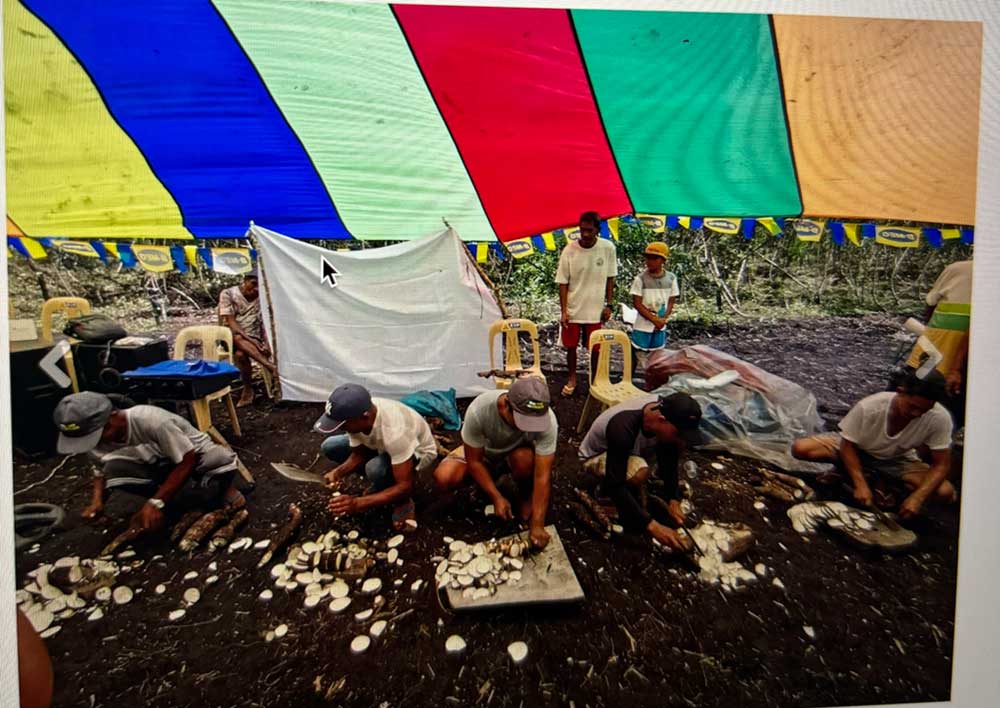San Miguel Foods said its Cassava Assemblers Program has yielded over 90,000 metric tons (MT) of cassava in the first half of the year, 44 percent higher than what was recorded for the similar period last year which helped boost farmer incomes.
Ramon Ang, San Miguel Corp. (SMC) chairman and chief executive officer, said the Cassava Assemblers Program is among the company’s long-running regenerative agriculture program that is in place in more than half of all the provinces in the country.
“Through our Cassava Assemblers Program, we offer a guaranteed market with purchase agreements, a fixed floor price and comprehensive technical assistance. We continue to engage with and encourage farmers to organize themselves and form small businesses, to assemble a minimum of 20 hectares of cassava plantation,” said Ang, in a statement.
Ang said assemblers purchase produce directly from small farm holdings which also solves the problem of economies of scale in production, lowering the unit cost of harvesting or transport, to a point where it is profitable for both the farmer and the assembler.
Butch Alejo, San Miguel Foods president, said the company has some 100 assemblers and thousands of farmers all over the country, planting and harvesting on some 45,000 hectares of land last year and this year.
Alejo said beyond large-scale cassava production, the program significantly contributes to sustainable, regenerative agriculture, as it helps enhance soil health and contributes to climate mitigation.
Alejo said cassava’s deep root system helps break up compacted soil, improves soil structure and increases soil organic matter which enhances overall soil health.
The company said cassava’s inclusion in crop rotations also diversifies plant species, reducing pest and disease pressures, while promoting beneficial soil microbes.
The crop is also known for its capability to capture carbon dioxide and store this in their biomass and soil.
“Cassava is a resilient crop that requires fewer chemical inputs like fertilizers and pesticides compared to others, reducing environmental pollution and supporting natural ecosystem processes… Its drought-tolerance and ability to thrive in marginal soils with low water availability make it vital for efficient water management, especially in areas facing water scarcity,” Alejo said.
SMC said the program also assures the company with a steady supply of essential raw material for its products.
“Our goal has always been to support farmers by harnessing the potential of cassava, a root crop that is ideally suited for cultivation in the Philippines. Due to its high carbohydrate and energy content, it is used as an alternative for traditional ingredients such as corn and wheat. Its byproduct, cassava pulp, may also be considered as another ingredient for animal feeds, highlighting the crop’s versatility in animal nutrition,” Ang said.
According to data from the Philippine Statistics Authority, the country produced a total of 2,556,238.37 MT of cassava last year, 0.15 percent lower from 2022’s 2,560,042.89 MT.





